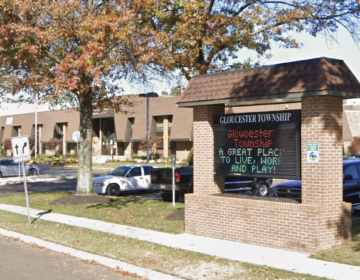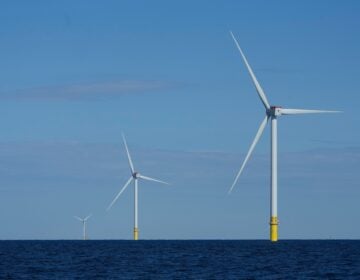Gloucester Township residents vote against proposed sewer sale
Gloucester Township voters bucked the growing trend of water and sewer sales to investor-owned utilities.

Gloucester Township, N.J. (Google maps)
On Election Day, Gloucester Township residents voted against selling their sewer system to New Jersey American Water, a subsidiary of the largest investor-owned utility in the U.S.
The failed referendum bucked a trend in the region, which has seen more than two dozen water system purchases over the last six years. American Water alone acquired seven new water or sewer systems across four states this year, including in Pennsylvania and New Jersey.
The company spent more than $1 million on canvassing and ads in Gloucester Township, hoping to convince residents to vote in favor of selling their sewer system. But it wasn’t enough to sway voters — the referendum lost by more than 80%.
Ira Eckstein, one of several residents who campaigned against the sale by talking to neighbors outside the local ShopRite, said he was surprised by the victory.
“When somebody spends $1 million to convince somebody to vote one way, and the other party spends under $100, what do you expect the results to be?” Eckstein said. “People thought we were nuts. They said, ‘They always win, you guys are going to lose.’ And guess what, they were wrong and we were right.”
Gloucester Township officials said the sale would pay off a $65 million debt, help reduce property taxes and fund recreational and other opportunities for residents.
However, residents accused the town of placing its financial woes on the backs of constituents, and they began a grassroots campaign against the proposal.
New Jersey American Water promised a two-year rate freeze and discounts for seniors. However, those who opposed the sale were worried the company may significantly raise rates over time to recoup costs.
Residents also believed the proposal was a conflict of interest because the mayor, David Mayer, is an employee of New Jersey American Water. However, Mayer recused himself from the process.
Opponents argued their sewer system didn’t need saving by a private company — a 2023 engineering report found the system to be in good condition.
The residents’ efforts to convince neighbors to vote against the sale was an uphill battle. Just last year, New Jersey American Water celebrated a sweeping win during a similar referendum in Salem. Also on Tuesday, residents further north in South Orange voted to sell their water system to the company.
“I think what was unique in Gloucester Township is that there were residents who were really up on the issues and really aware of what local government was doing and not doing,” said Kate Delaney, a political organizer with Food and Water Watch, which has advocated against water privatization throughout the U.S.
“It’s really a show of power. They can control the decisions about their community,” said Delaney. “They can veto these decisions that their power holders in their community are making.”
In a statement, New Jersey American Water said it was disappointed by the outcome of the referendum, but thanked council members, community leaders and residents.
“As the longtime water provider to about one-quarter of the homes and businesses in Gloucester Township, we will continue to deliver exceptional service,” said Mark McDonough, president of New Jersey American Water. “And we remain committed to supporting local governments who explore a partnership with New Jersey American Water to solve the challenges associated with owning and operating a water or sewer utility.”

Get daily updates from WHYY News!
WHYY is your source for fact-based, in-depth journalism and information. As a nonprofit organization, we rely on financial support from readers like you. Please give today.






